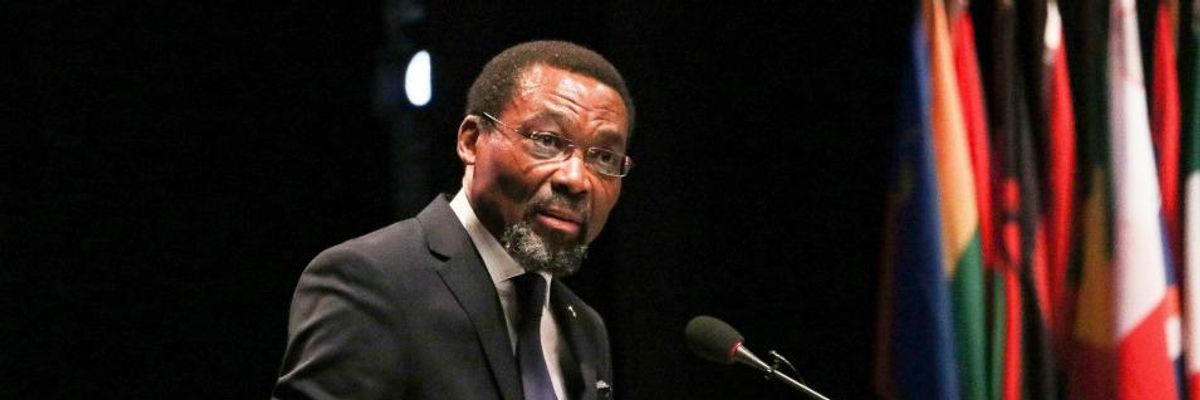The head of the International Criminal Court expressed shock late Tuesday at the Trump administration's continued threats to the institution and accused the U.S. of unlawful conduct.
Chile Eboe-Osuji, president of the body, accused the Trump administration of attempting to coerce the court "in order to have justice the way [it wants] it."
The U.S. said this month it would restrict visas for ICC officials taking part in an investigation into war crimes in Afghanistan, which was authorized in March, as well as their families' visas. The administration also threatened to open its own probe into corruption at the ICC.
Last week, Attorney General William Barr said that by investigating war crimes in Afghanistan--including those perpetrated by the CIA and U.S. troops as well as the Taliban and government forces--the ICC is "exceeding its mandate and violating the sovereignty of the United States."
"This is unlawful... In any liberal democracy, or even not so liberal democracies, you pick up a statute book and it will tell you that it is against the law to coerce a court of law," Eboe-Osuji told The Guardian on Wednesday. "Even in the U.S. itself, the law forbids that form of conduct."
An ICC investigation would likely uncover information about CIA "black sites" that were set up around the world, where U.S. authorities tortured detainees. Earlier this year, the U.N. said at least 100,000 civilians have been injured or killed in the last decade. The U.N. began tracking civilian casualties almost a decade after the U.S. invasion of Afghanistan.
The ICC's chief prosecutor, Fatou Bensouda, confirmed in April that her visa had been revoked shortly after the investigation was announced.
Eboe-Osuji told The Guardian on Wednesday that he was confident that the 123 member states of the ICC "will understand this as an attack against them too."
On Tuesday, nearly 70 of the member states expressed support for the ICC. The Costa Rican and Swiss delegations drafted a statement affirming "unwavering support for the court as an independent and impartial judicial institution."
"We remain committed to an international rules-based order," reads the statement. "The ICC is an integral part of this order and a central institution in the fight against impunity and the pursuit of justice, which are essential components or sustainable peace, security, and reconciliation."
"We call on all states to ensure full cooperation with the court for it to carry out its most important mandate of ensuring justice for the victims of the most serious crimes of international concern," continued the member states.
The statement was signed by U.S. allies including the delegations from the U.K., France, and Germany.
Separately, France--which also sent troops to Afghanistan and which could potentially be implicated in the war crimes investigation--called the Trump administration's threats "a grave attack on the court and a further undermining of multilateralism."
Human Rights Watch applauded the show of solidarity by the 67 member states.
"Multilateral support for the ICC is key to deterring the chilling effect of the Trump administration's outrageous effort to undermine justice for victims," said international justice director Richard Dicker. "Member countries will need sustained vigilance and to be ready to take further steps to push back against U.S. bullying of the court."



